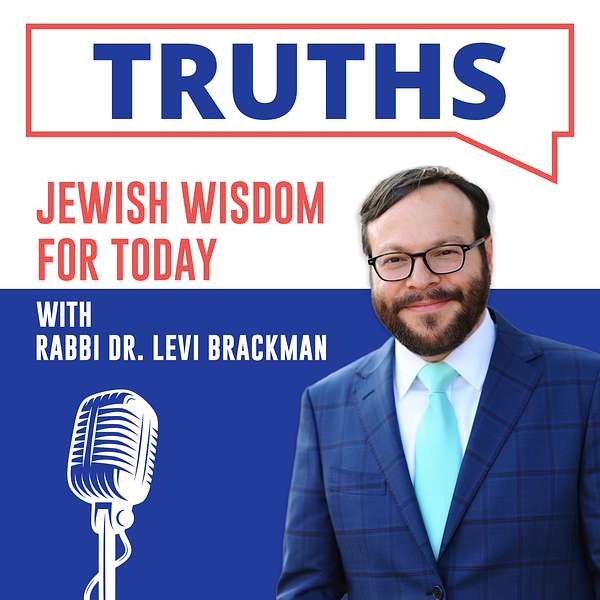
Truths - Jewish Wisdom for Today
Hosted by Rabbi Dr. Levi Brackman, "Truths: Jewish Wisdom for Today" is an insightful podcast exploring the confluence of religion, science, and philosophy.
The podcast serves as a platform for curious minds who value nuance and pursue wisdom. It is not designed for individuals seeking absolute truths or those inclined towards unquestioning religious adherence, but instead for those who traverse our rapidly evolving world as seekers and explorers.
With the mission to impart valuable insights rooted in Jewish perspective that resonate with contemporary times, "Truths: Jewish Wisdom for Today" learns from distinguished guests, shares insights with listeners, and adapts with time and context. This podcast stands as a guiding light for those questing for wisdom and a nuanced understanding of spirituality amid the complexities of the modern world.
Truths - Jewish Wisdom for Today
The Torah’s Rejection of Venerating Dead Leaders - Chukat
In this episode of "Truths: Jewish Wisdom for Today," Rabbi Dr. Levi Brackman discusses the Torah portion "Chukat," which heavily focuses on the concept of death. He explores the significance of death in the Torah, emphasizing that while life is sacred and filled with purpose, death represents the cessation of this purpose and the ultimate impurity. Brackman explains that a dead body is considered the "father of all fathers of impurity" because it no longer contributes to the world or fulfills a divine mission.
The episode delves into the purification process from the impurity caused by contact with a dead body, specifically the ritual involving the ashes of the red heifer. This process is noted for its perplexing nature, where the person performing the purification becomes impure themselves.
Brackman highlights the Torah’s intent to stress the value of life by contrasting it with death. He points out that the Torah teaches that after death, a person's body becomes an inanimate object with no value except for proper burial. This is to discourage the veneration of the dead, a common human tendency, and to emphasize the importance of the living and their ongoing mission.
He uses the deaths of Miriam and Aaron, Moses' siblings, to illustrate this point. Aaron's death, described in detail in the Torah, includes a ceremonial transfer of his high priestly garments to his son Elazar, signifying the transfer of leadership and authority to the next generation. This public transfer underscores the finality of Aaron's death and the need for new leadership.
Brackman connects this biblical lesson to contemporary issues, criticizing the reluctance of current leaders, like U.S. President Joe Biden, to relinquish power to younger generations. He argues that holding onto power too long stifles the necessary progression and adaptation of leadership for new generations.
He concludes by warning against the unhealthy veneration of past leaders, which he sees as prevalent in modern Judaism. Instead, he advocates for recognizing and learning from current, living leaders who can reinterpret the Torah to meet the needs of today's generation. This ensures the teachings remain relevant and vibrant, emphasizing the living Torah over the past teachings of deceased leaders.
Levi Brackman is a rabbi, Ph.D. in psychology, best-selling author of Jewish Wisdom for Business Success, and founder of Invown, a platform for real estate fundraising and investing.
